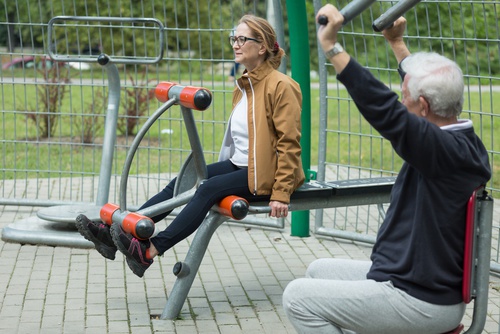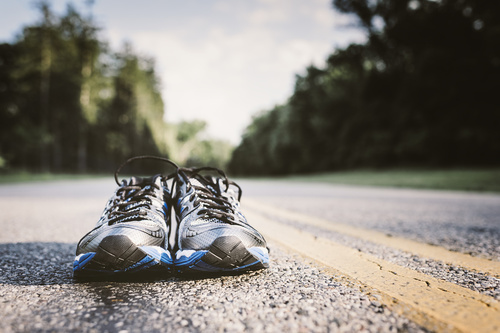The Importance of Risky Play for Physical, Social, and Emotional Development

Engaging in risky play is a natural part of a child’s development. In addition to increasing physical activity and developing social skills, risky play is a way by which children learn to adapt to their environments and fears, and may moderate the potential of a future anxiety disorder. Risky play is a form of play…
Fitness Trackers and Counting Steps: Marketing Ploy or Health Tool?

Fitness trackers have become increasingly popular among both people who are new to exercise, and those who have been long-time athletes. Current wrist-worn trackers can function as watches, heart rate monitors, sleep trackers, calorie counters, GPSs, and even as phones, opening up a market that seems inconceivably far from the original pedometer. However, the 10,…
Active Parks, Active People?

One of the top recommended strategies to increase physical activity is to increase public access to places where people can engage in physical activity. Installing free outdoor fitness equipment to create “active parks” is one way some cities have targeted increasing opportunities for adults and seniors to get fit. While there are many benefits to…
Advancing Concussion Education at the Community Level
Participation in sport can be an integral, rewarding component of life. However, sport concussions can too easily derail the benefit of both competitive and casual exercise—instances that can be avoided through proper education and preventative measures. Sport is especially advantageous for adolescents. Those who participate in sport during this period often build better social skills,…
Goalball, Snowsnake, Disc Golf, and more: 150 Activities to Celebrate 150 Years

Happy Birthday, Canada! “Sit less and move more”: ParticipACTION, a Canadian non-profit organization, aims to engage people across the country to make physical activity a key component to everyday life. In celebration of Canada’s 150th this year, ParticipACTION created its 150 Play List. Made up of 150 physical activities, the Play List challenges us to…
Long-Term Athlete Development: A Primer for Coaches, Athletes, and Parents

The Long-Term Athlete Development (LTAD) Framework was developed by Sport For Life to address several problems and gaps affecting low participation and excellence in Canadian sport, such as lack of fun, burn-out, poor skill development, and failure to reach optimal performance. Now applied by countries worldwide, LTAD provides guidelines for the “when” and “what” of…
Debunking the Myth of Running Shoe Selection

The Flawed Model of Running Shoe Selection Magazines, shoe stores, and shoe manufacturers have long prescribed running shoes based on an individual’s arch type. Normal levels of supination are needed to generate force upon push off, while pronation helps to absorb the force of heel strike. Some people have foot shapes that are more at…
Mom and Me: Active Lifestyles Begin at Home!

A physically active lifestyle begins to develop early in childhood. Almost 31% of Canadian children and youth 5-19 years of age are overweight or obese and if the current trends continue, by 2040, 70% of 40-year-olds will be overweight or obese. The importance of physical activity at an early age does, however, give us an…
NEWCOMERS EXPERIENCES WITH PHYSICAL ACTIVITY IN CANADA

SIRC is pleased to be working together with Sport Canada to share current research on topics informing policy and promoting quality sport programming. This week we are sharing highlights of a recent article reviewing a research study evaluating NEWCOMERS EXPERIENCES WITH PHYSICAL ACTIVITY IN CANADA. Fitting it in: How being new to Canada influences physical…
Tips for an Active Spring Break!

With many school systems across the country going into Spring Break, families are looking for ways to keep their kids active and engaged. Whether they are at home for the week or you decide to go on the road, there are many ways to incorporate fitness and fun into the break. Want to avoid hearing…